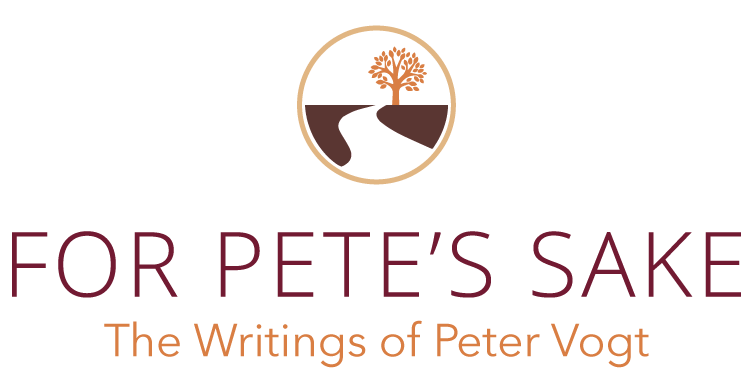My Story, Your Story — They’re All Powerful
The other day, I got up in front of about 60 total strangers and told them how my wife, Lois, died of cancer a little over a year ago. The audience members were employees of a large health care organization, and I was there talking about how one of its services had helped me and my two young children so much in the time since Lois’s passing.
In my mind, I was simply telling them my story — “just” my story, nothing particularly special or remarkable. It was merely a recounting of what had happened to us, and what my kids and I had been doing to heal in the aftermath. It was extraordinarily easy for me to do. Yes, the subject matter was painful. But the act of standing in front of the group and talking about what had happened was as natural as can be. Practically effortless.
After I left the event, I went to my girlfriend Adrianne’s house and told her I thought my presentation had gone well. I was happy to have contributed something, I said. And Adrianne replied that she was proud of me. After that, I didn’t give my presentation another thought.
But the next day, I was reminded once again how powerful stories are. And not just any stories, but our stories. Our own life experiences and the lessons we’ve learned from them are valuable — to us and, especially, to others — even though we ourselves tend to underappreciate them or even discount them entirely.
Here’s a portion of the email I received the day after my talk from the person who coordinated the event and had asked me to speak:
You did an amazing job at our luncheon this week. In fact, you were the highlight of our program. I can’t even tell you the number of folks who commented positively on your presentation. We were fully moved by your words of love for your family and your kind words for [our organization]. I have to tell you I was so proud to be a part of [our organization] as you spoke — to know that this organization and our staff made things even a little easier for your family during this difficult time. Thank you for so bravely sharing these intimate details of your life with our group.
I’m only human, so I confess that it was — and still is — nice to hear that I was the “highlight” of the event. But what really strikes me about this email is the fact that my seemingly straightforward, quasi-off-the-cuff sharing of my story, from the heart, stayed with people much more than the PowerPoint-driven presentations and group discussions that had comprised the rest of the day. My story — my “little” story — stuck in people’s brains. My story — my “little” story — made the most impact. Even though, to me, it was just life — something that had happened to me and my family.
We all need to be reminded of this lesson about the sheer power of our own stories, as eloquently described by author Julia Cameron in The Right to Write:
It is a great paradox that the more personal, focused, and specific your writing becomes, the more universally it communicates.
My story, your story, your friend’s story, your neighbor’s story — they’re all very powerful, yet they’re as easily accessible as the air we breathe. We just have to remember that a) our own stories are indeed compelling and educational, and therefore b) we need to actively share them (or seek them out from the people we care about, as the case may be).
My 79-year-old father has many stories to tell, but he rarely tells them. Whose fault is that? His to a certain degree, for he probably tends to minimize his own life experiences the way most of us are prone to do. But I am at least as much to blame, as are my three siblings and many others in my father’s life. Why? Because we don’t ask to hear my father’s stories nearly often enough. And we don’t remind him what his stories mean to us when he does share them.
Why has the Chicken Soup for the Soul series of books sold tens of millions of copies? One word: stories. Powerful stories — not from powerful people in most cases, but instead from everyday people whose everyday stories pack more power than even they themselves might imagine.
My stories matter. So do yours. You don’t need to be famous or wealthy to have stories with impact. In fact, the more “typical” your story might seem to you, the more powerfully it speaks to others.

I’m a writer. An essayist, to be more exact. I tell stories here—true stories, from my own life, in hopes they will make a positive difference in yours.
I share laughs and tears, insights and observations, frustrations and realizations, relying all the while on the storytelling wisdom of Julia Cameron, author of The Right to Write.
It is a great paradox that the more personal, focused, and specific your writing becomes, the more universally it communicates.

Leave a Reply
Want to join the discussion?Feel free to contribute!